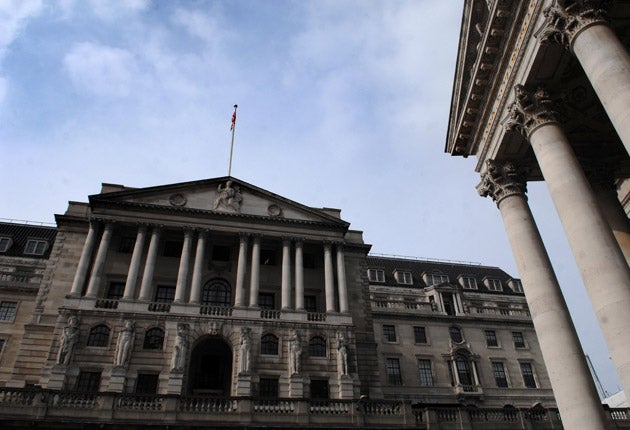UK national debt: who does the government owe £2 trillion to and should we be concerned?
At £2.08 trillion, the total debt pile is so large it is difficult to comprehend – more than the UK’s economic output for a year

The UK’s national debt has hit its highest level in almost 60 years after the government spent another £22bn to help the country through the coronavirus crisis.
At £2.08 trillion, the total debt pile is so large it is difficult to comprehend. It is more than the UK’s economic output for a year.
Yet, despite the national debt having been central to political debate for much of the past decade, there remain some understandable and widely held misconceptions about what the national debt is and how concerned we should be about it.
Who is the country in debt to?
The government issues bonds – contracts to borrow money, paying a set amount of interest over a given period of time – which are bought by private investors. Many bonds are bought up by pension funds which are keen for stable, long-term returns that savers want.
The Bank of England also creates new money to buy up government bonds, a process euphemistically known as quantitative easing. It has created £450bn so far this year – more than double the amount the government has borrowed in that time.
Action between the Bank of England and the Treasury has become more co-ordinated during this crisis, with the latter announcing spending plans hours after the former has said it will create billions more pounds.
The Bank is, indirectly at least, creating money to fund government spending.
Is the debt ‘too high’?
It doesn’t appear to be at the moment.
In the years following the 2008 financial crisis, many governments subscribed to a theory that when the national debt rose beyond about 90 per cent of GDP it began to become a drain on the economy, slowing down growth. Therefore, budgets should be kept under tight control, the theory went.
That idea has since been discredited and the economists behind it have expressed regret about errors in their research. There is no established link behind the size of the national debt and economic growth. Through many of the most prosperous periods in Britain’s history, the national debt has been far higher than it is now.
In the years following the Napoleonic Wars it reached 200 per cent of output and did not fall back to the level it is today until well into Queen Victoria’s reign.
It peaked even higher at the end of the Second World War and remained above today’s level until the early 1960s.
Should we ‘balance the books’?
A misconception that has been encouraged by several politicians, particularly those in favour of smaller government, is that the public finances should be run like a household with outgoings tightly controlled to match earnings.
For a household whose monthly income is, generally speaking, fixed, rising debt can quickly become unsustainable. Debt therefore often has negative connotations.
But for every debt there is a corresponding income for a creditor, such as private citizens through their pension funds.
In addition, the government’s income is not fixed like the salary of a household. It rises and falls depending on the activity taking place in the whole economy which generates tax revenue. At the same time, it is the biggest spender in that economy, accounting for around 40 per cent of GDP.
By spending money, especially when the wider economy is subdued, the government creates activity and demand, which generates more tax.
More government spending results in more government income (although it should still be put to the best use).
Cutting spending at the wrong time can have the opposite effect, deepening and prolonging a recession.
So can the UK borrow more?
An important measure of the sustainability of the public finances is the monthly payments, rather than the total debt.
The official figures released on Friday show that interest payments on the government’s outstanding debt were £2bn in October 2020, £4.4bn less than in October 2019. This is a relatively insignificant monthly outlay for the government.
The fall is largely because a lot of government debt is linked to inflation, which has fallen during the pandemic (partly because less demand has meant lower prices for many goods and services).
It is one reason that a majority of experts are relaxed about the prospect of taking on more debt and believe the alternative of not doing enough to stimulate the economy would be more damaging.
With interest rates very low and the economic situation uncertain, lots of savers are looking for secure, long-term returns. Demand for government bonds remains high.
So, perhaps a more important question than how much should the chancellor spend is where would it be most effectively spent.
Where could money be spent?
There are plenty of areas where money could be channelled to boost the economy. When the government can borrow at less than 1 per cent annual interest over 10 years, as it can currently, it needs to find projects producing only very average returns in order for its investment to pay for itself.
After years of under-investment, there are a number of infrastructure projects that could be given extra funding. Environmental groups were disappointed with the limited funding behind Boris Johnson’s “green industrial revolution” unveiled this week.
Unemployment is expected to spike early next year, so the government could help to train or provide jobs for lots of people.
The fiasco of billions of pounds of PPE contracts handed to inexperienced companies shows how large sums of public money can be wasted.
With a spending review to be announced next week, the chancellor has a chance to do things a little better.




Join our commenting forum
Join thought-provoking conversations, follow other Independent readers and see their replies
Comments